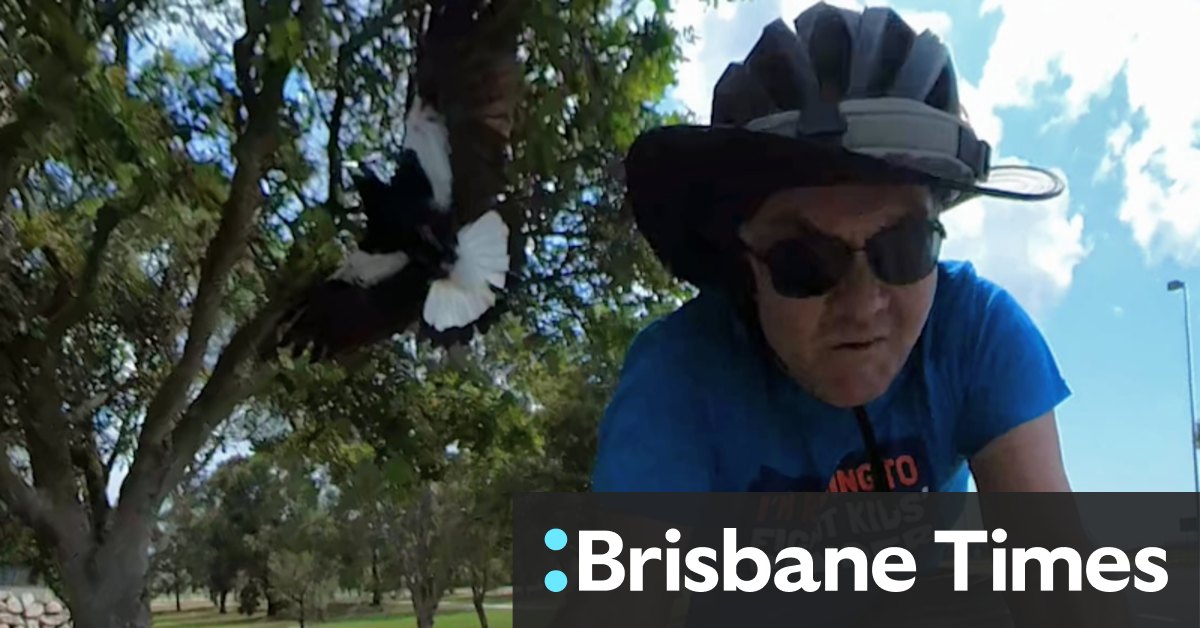“He usually doesn’t follow you down the road,” he said.
Some birds, such as magpies and butcherbirds, get defensive during breeding season, which runs from July to January and peaks in September and October.
Loading
Magpie expert Emeritus Professor Darryl Jones, a behavioural ecologist, last week told this masthead swooping magpies were, without exception, male.
“One of his many jobs is to keep predators away from the nest,” Jones said.
“The reason for magpies to swoop people is for some reason, they’re treating people as predators. So they treat us exactly like they would a snake or a dingo or a goanna that’s climbing up to the nest.”
Only about 10 per cent of male magpies swoop, and the most targeted group were cyclists, often because they were coming fast, which was a “threat in itself”, BirdLife Australia senior adviser Sean Dooley said.
Since July 1, the council has been contacted 87 times about swooping birds.
Over the 12 months, New Farm had the top number of reports, followed by Brighton, Forest Lake, Everton Park, Bald Hills and Coorparoo.
According to website Magpie Alert, Queensland seems to have among the most defensive birds in the country, leading to the most injuries, with 14 per cent of swoops resulting in injuries.
Last year, a particularly vicious and persistent bird was reported on the Gateway north bikeway at Banyo, with people reporting it targeted cyclists’ ears, with five injuries from 14 swoops.
More than 41 birds were relocated in Brisbane in the past financial year.
Tips to avoid swooping birds include avoiding known areas, travelling in a group, not running as it can encourage a bird to continue to attack, wearing a hat or using an umbrella, and wearing sunglasses to protect eyes.
Brisbane Lord Mayor Adrian Schrinner said the city’s biodiversity was a big part of what made it special.
“If residents witness a swooping bird, please let council know so we can monitor the bird and install signage to warn other residents.”

